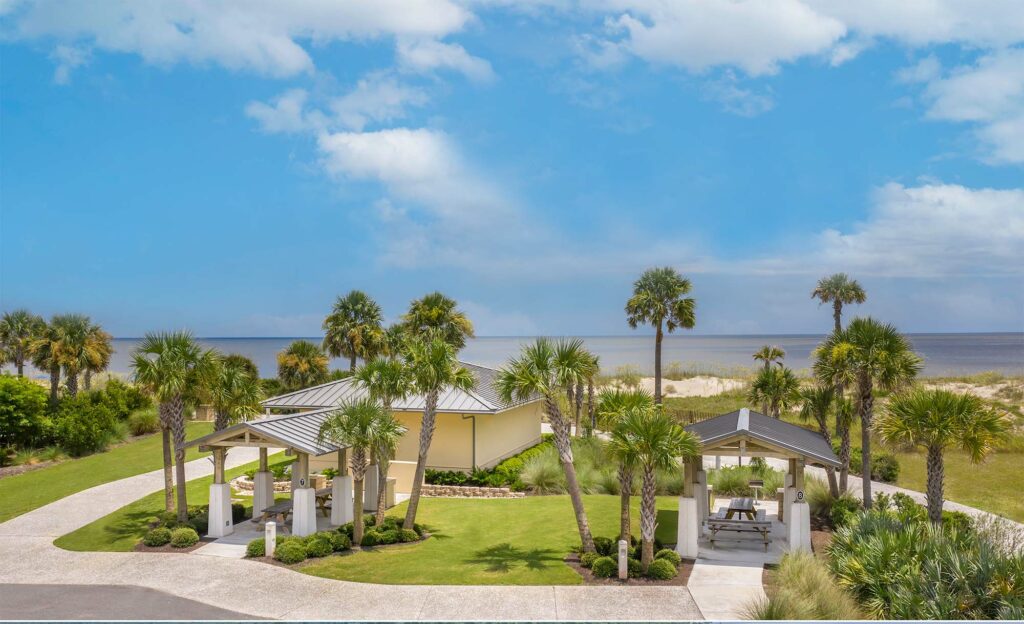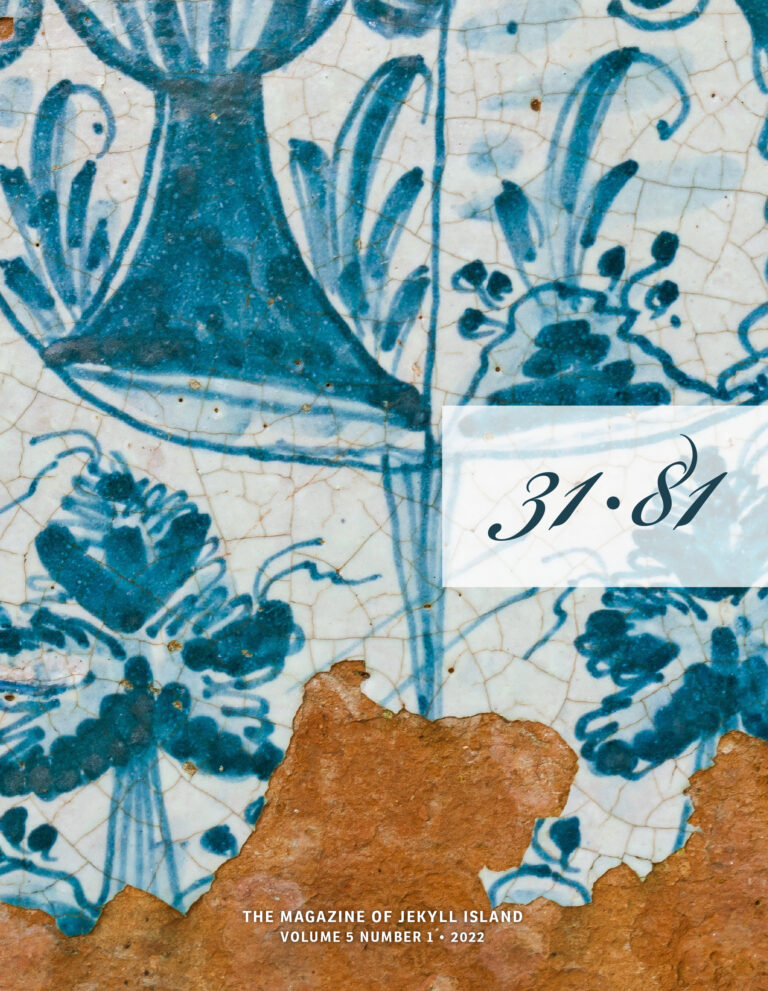Over the past decade-plus, island revitalization efforts have created a new kind of Jekyll
BY JOSH GREEN
Ask longtime Jekyll Island visitors, residents and Jekyll Island Authority (JIA) employees for their
impressions of the place prior to 2019, and the response was a mixture of nostalgia and hopefulness.
Andrea Marroquin, curator of Mosaic, Jekyll Island Museum, moved to the area in 2003. She likens the old Jekyll to The Velveteen Rabbit—something beloved but a bit tattered and worn. Jekyll Realty owner C.J. Jefferies, an island resident for 40 years, says non-locals for decades considered Jekyll “a place frozen in time, a sleepy little seaside community where little changed from year to year.” Repeat visitors found that comforting, says the broker, but newcomers sometimes looked elsewhere for their next vacation, someplace with more updated amenities and a little less sleepiness.
That was Noel Jensen’s feeling in 2007 after moving his family from North Carolina to Jekyll’s Glynn County. They visited the island for a couple of days and left unimpressed—that’s putting it gently. They didn’t return until Jensen came back to manage a private construction project on the island in 2015. He was awed by the refreshed Ben Fortson Parkway, the revitalized island roundabout, the obvious investments in hotels. “It was stunning,” recalls Jensen, who would become senior director of facilities and public services for the JIA in 2015, and now serves as deputy executive director. “It was really a signal that Jekyll was back, right in the entry corridor. It didn’t take long to realize it was once again a special place.”
So how did Jekyll transform from its bedraggled bunny phase to Money magazine’s No. 1 U.S. travel destination of 2019? How did it come alive as a uniquely historic barrier island that maintains balance between enchanting nature and commerce without becoming Myrtle Beach South?
A turning point came when chairman Ben Porter and the JIA Board hired current executive director Jones Hooks in the summer of 2008. A 30-year veteran of managing multifaceted organizations, Hooks has had a knack for seeing value in buildings considered “to be beyond their useful life,” and for finding ways “between public-private partnerships, public funds, and just straight investment from interested parties to totally give Jekyll Island a facelift that it truly needed,” says Jensen.
A formal reinvestment effort funded mostly by private dollars began in 2008. Governor Sonny Perdue and the state legislature made the decision to invest in revitalization during that time, contributing further to the progress of Jekyll Island. Things really kicked off when the JIA ended a partnership with an Atlanta-based developer and transitioned to accomplishing projects one by one, including the completion of Beach Village, a turning point for the progress.
In the past decade, Jekyll Island has seen an infusion of more than $300 million in private and public revitalization funding investments in the form of Beach Village, a $38 million convention center, the new $44 million, 200-room Westin hotel, a new $16 million, 107-room Home2 Suites by Hilton hotel, and various other new projects and facelifts that have created what feels like a completely different visitor experience. By law, no more than 1,659.4 acres of the island can be developed, which means all new construction has taken shape on the footprint of previous structures, instead of clearing forests or beachfront property. Many public projects, including parks and bicycle paths outside of the original plans, have been funded as a result of revitalization, too. Not since the island was transitioning to a state park in the 1950s has it seen such a boom.
Traffic onto the island swelled to 1.2 million vehicles in 2019—a nearly 37 percent increase over 2013. The growth in JIA entry-gate revenues over the same timespan was even more dramatic: up 56 percent to $4.2 million in calendar-year 2019.
But as the JIA looks to the future, finding balance remains the key to success for the island. In discussing the island’s 2021 Master Plan Update, executive director Jones Hooks says “With much of the original revitalization plan completed, capacity management becomes our greatest priority. The enhanced facilities and amenities provide the funding needed to preserve Jekyll’s natural resources and character—its greatest asset—so that visitors and residents can enjoy the uncrowded and natural recreation that set Jekyll Island apart from other destinations.”
Here’s a closer look at key projects that have helped make Jekyll new again:
Great Dunes Beach Park
This 20-acre linear beachfront park near the island’s central core—Jekyll’s most popular for families—opened in 2010. These days, attractions include bocce ball, volleyball, a beach deck, and several picnic pavilions, as well as ADA-accessible restroom and shower facilities.
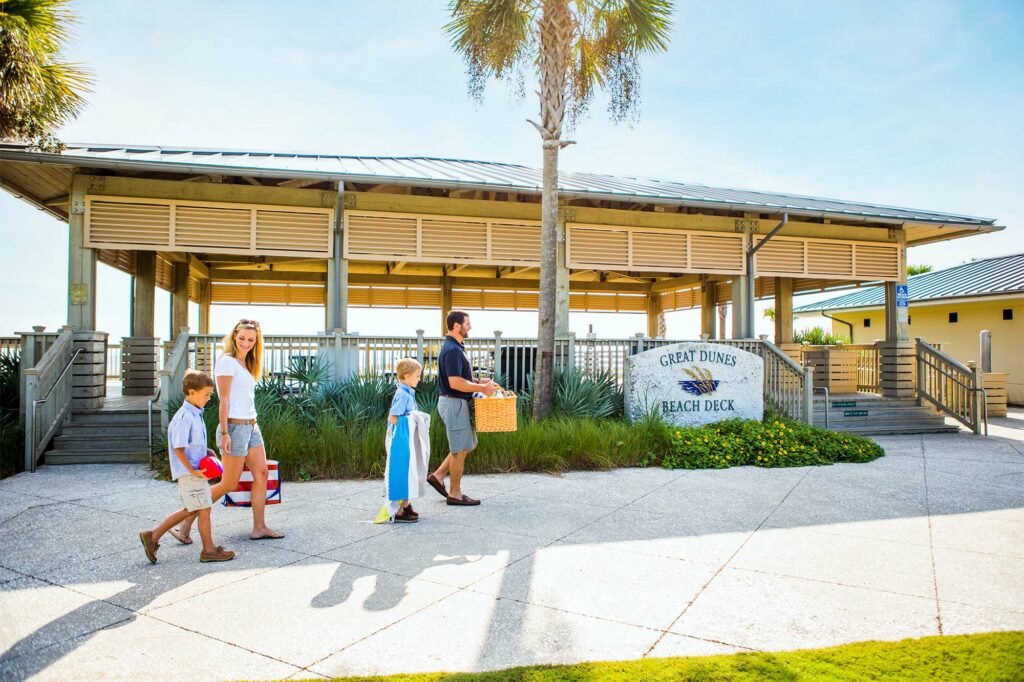
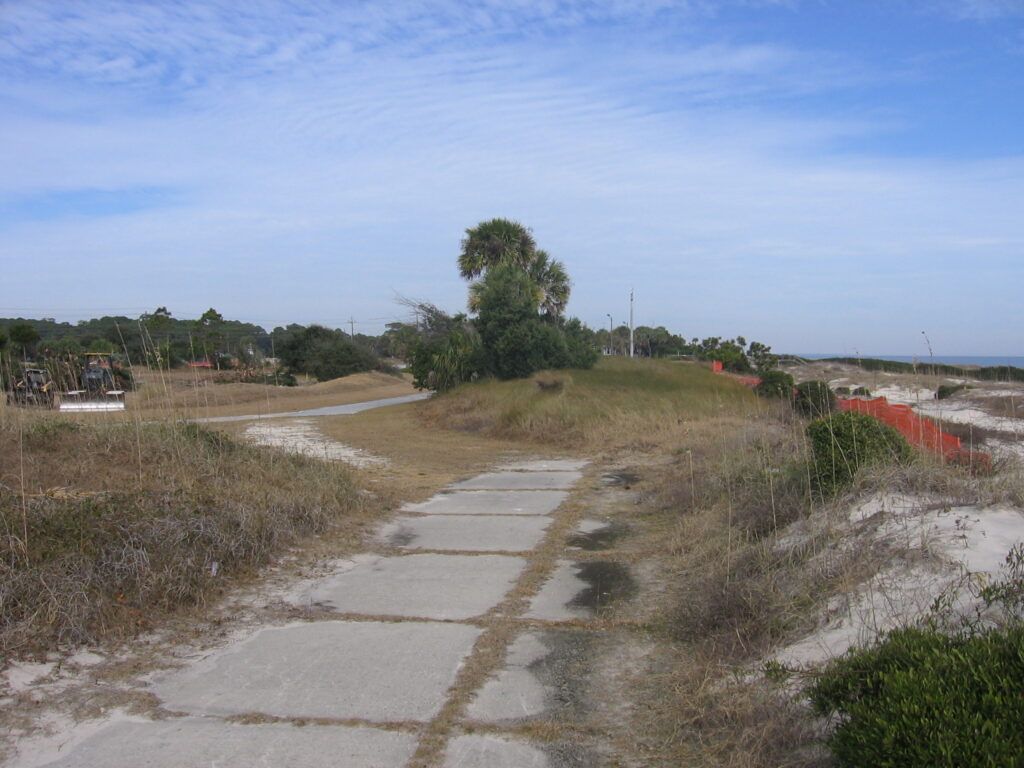
Freshening up the Rooms
Also in 2010, the Hampton Inn opened, marking Jekyll’s first newly built hotel in thirty years. The most recent hotel addition, a dual-branded Marriott property, debuted in the summer of 2021, on the site where several previous hotels dating back to the 1960s have stood. Now, what remains, is one undeveloped parcel of land next to the new Courtyard & Residence Inn by Marriott that was slated for development within the original revitalization plans. “At least 10 hotels have been revitalized or built in the past decade,” says Jensen.
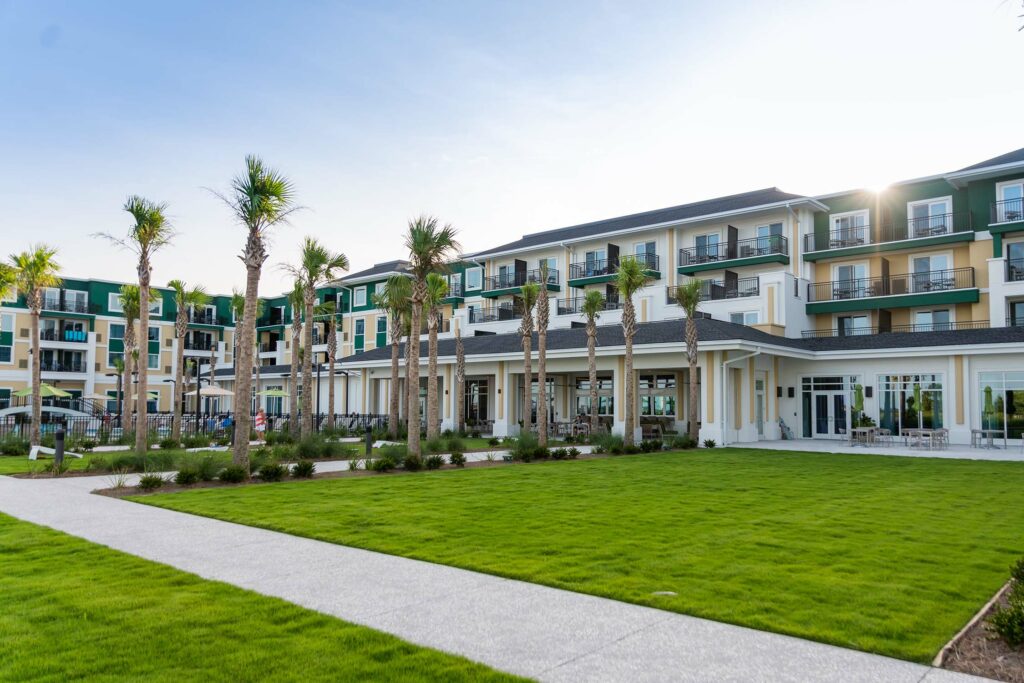
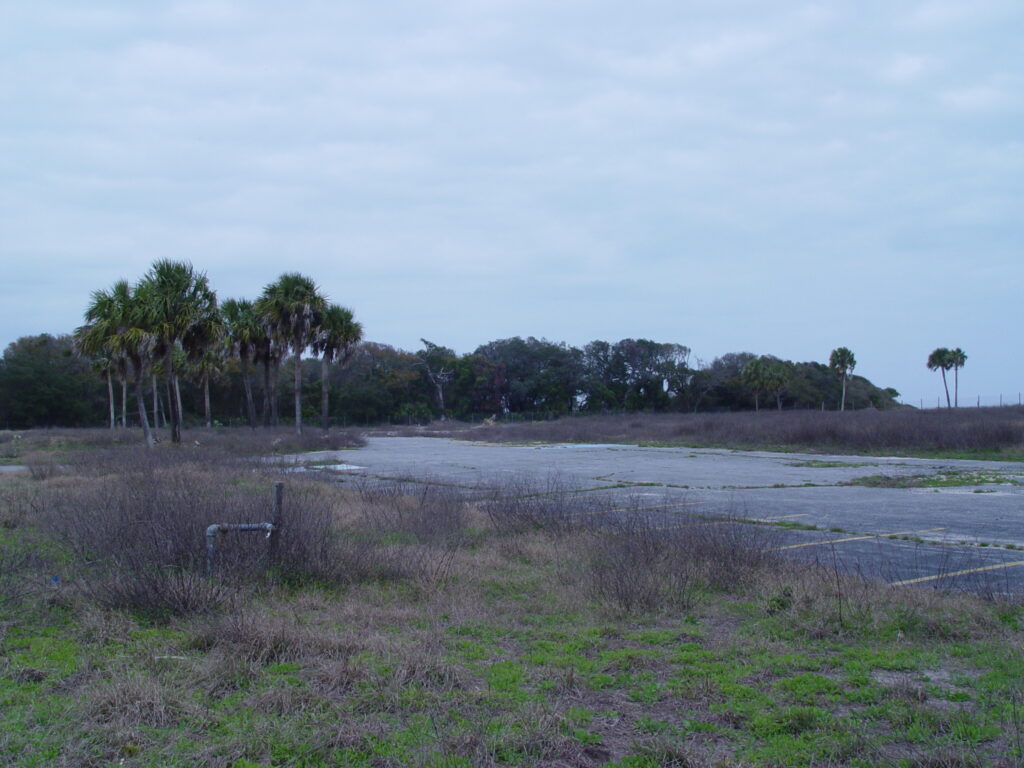
Jekyll Island Convention Center
According to Jensen, it’s hard to overstate the economic impact the Southeast’s only oceanfront convention center has made. The modern facility opened in 2012, spanning 128,000 square feet with capacity for 2,000 guests. Jensen calls the venue’s roughly $39 million construction costs paltry by today’s standards and one of the best investments ever made on Jekyll. “It supplies a piece of the visitation pie that had more or less evaporated,” he says, “because of the condition of the old convention center.”
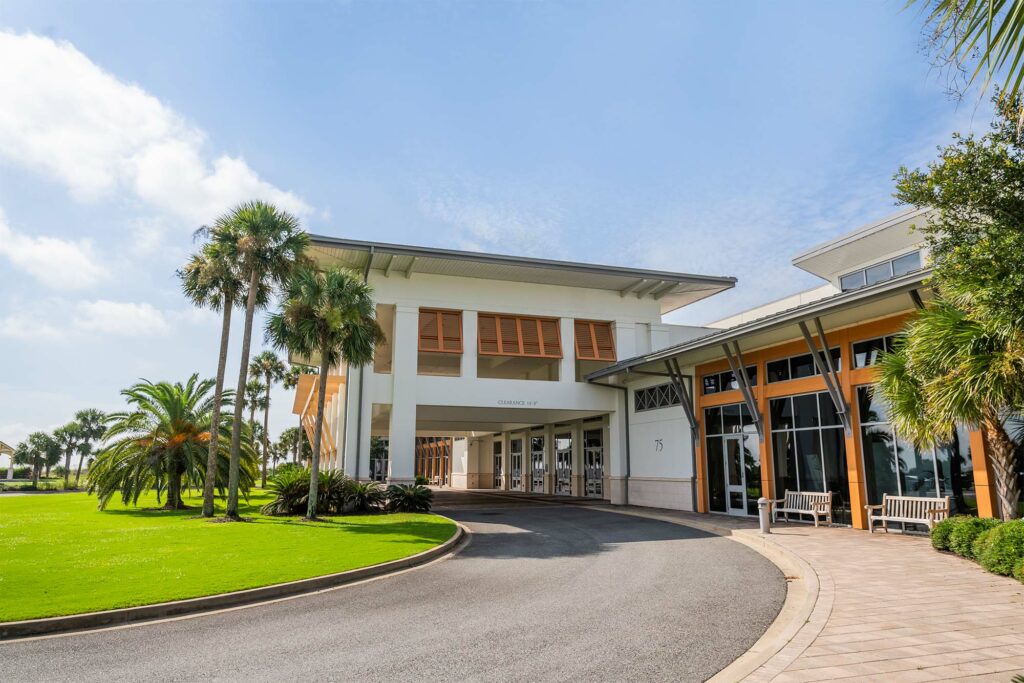
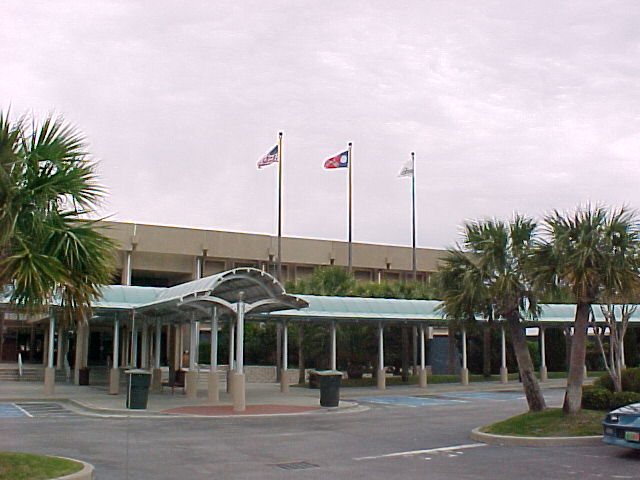
Causeway Improvements
Upgrades to the once-humdrum Jekyll Island Causeway have been happening for years. “We took several elements—the entrance with the pond and signs, as well as the [1950s] welcome towers—and redesigned them so the whole space leading up to the causeway would have a more cohesive appearance and experience,” says Marroquin.
Beach Village
What’s been called the island’s “epicenter” at Main Street and Ocean Way opened in 2015 as a palm-studded hub of gifts shops, market fare, and clothing boutiques next to The Westin Jekyll Island and the Home2 Suites.
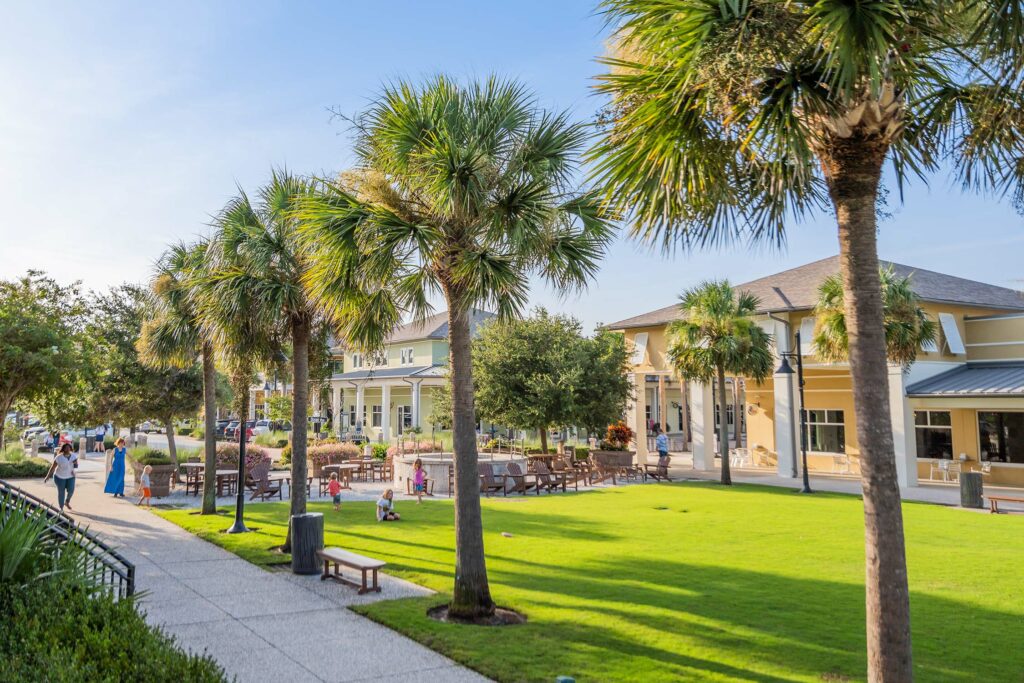
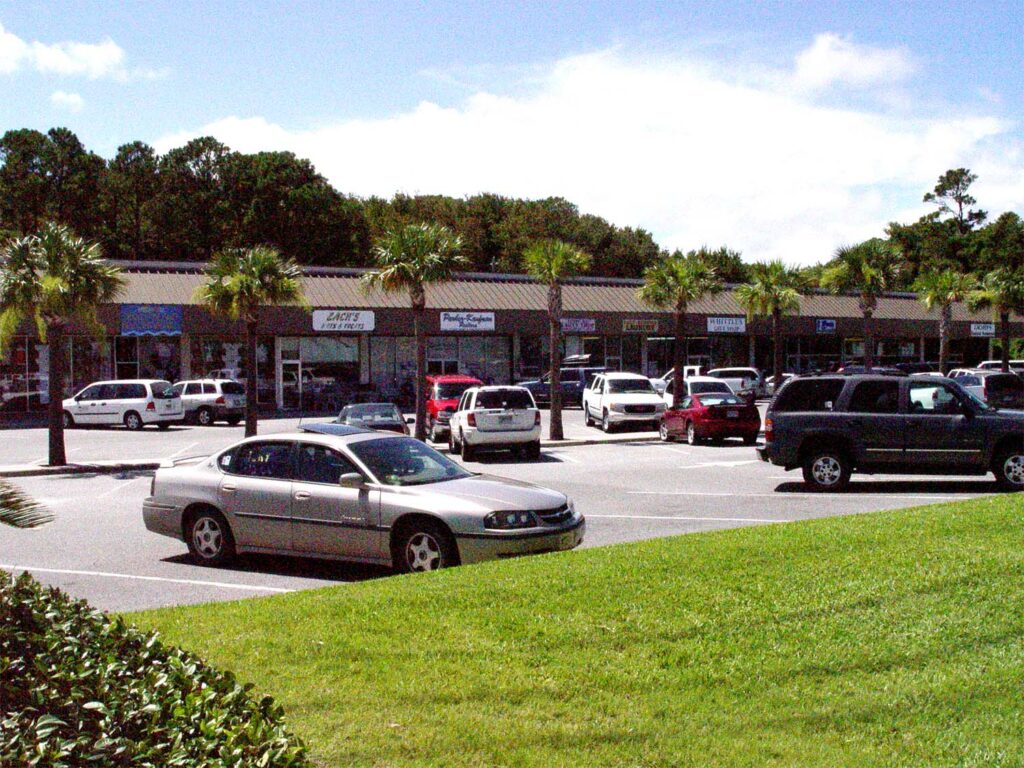
Camp Jekyll
After years of neglect and degradation, the JIA opened a brand-new, state-of-the-art learning and youth center on the old 4-H Center grounds in 2017—where one of the few beachfront destinations open to African-Americans before the civil rights era had once stood. The 256-bed, $17-million complex carefully retained the original pavilion with civil rights elements that provide interpretation of its important history. In 2019, the facility hosted thousands of kids from across the state.
Mosaic, Jekyll Island Museum
In spring 2019, a $3.1-million restoration and redesign of the museum debuted, chronicling island history from the Native American era through the 1960s via in-depth and interactive exhibits. It’s housed in the late 1800s former Jekyll Island Club stable. Marroquin says patronage since the building’s redo has been “amazing” across all age groups.
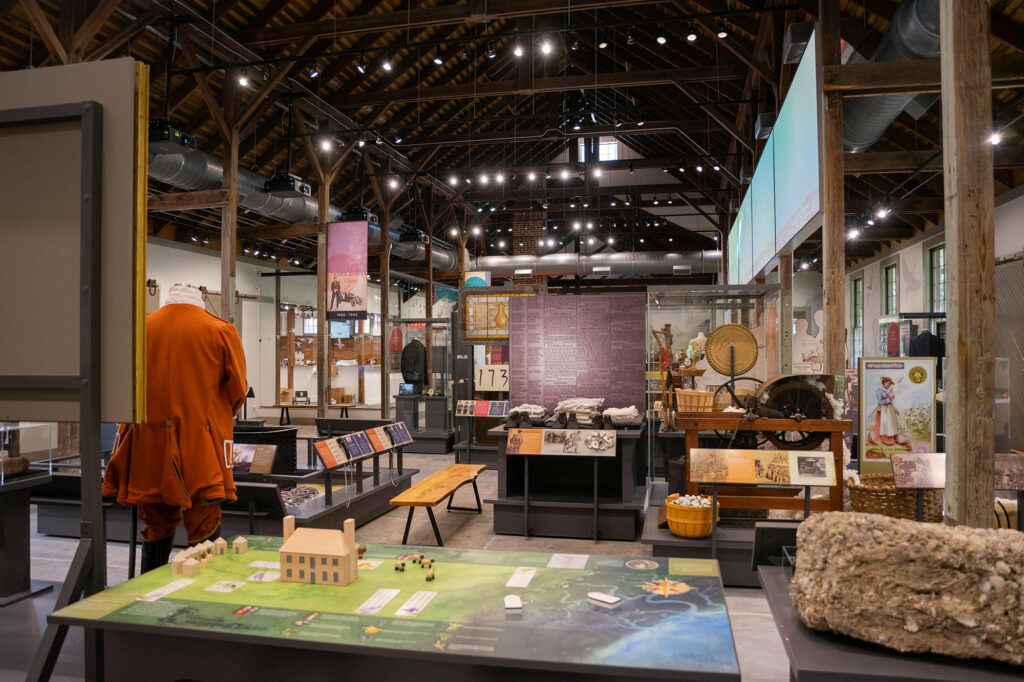
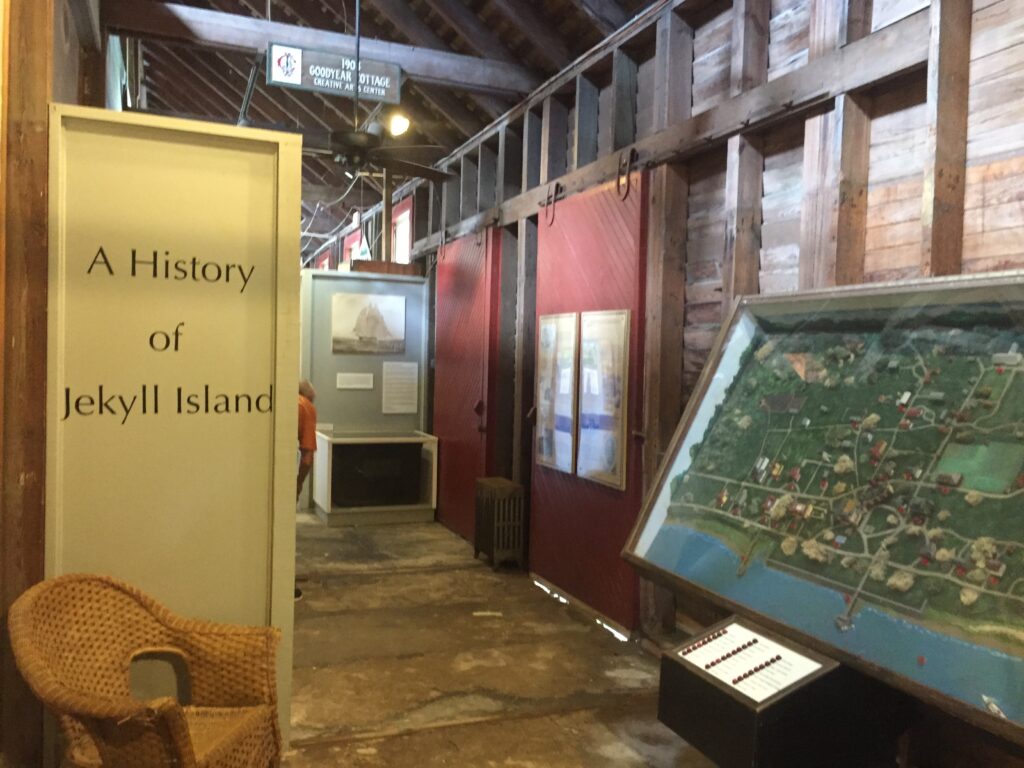
Jekyll’s New Wildcards
Smaller—but important—island additions:
A Real Gas
The $1.4-million upgrade of sleepy Jekyll Island Airport that wrapped in April 2020 included the island’s first aviation fuel facilities—an unexpected boon for tourism that’s attracted owners of small planes from far and wide.
Summertime Splash
Recent additions to the 1980s-era Summer Waves waterpark, including the kids’ zone Shark Tooth Cove, have been a draw in recent years. But the addition of a towering, four-slide complex in 2022 called Man o’ War will be a game-changer, capable of accommodating 700 people per hour.
Bicycling Boost
More than 20 miles of bike trails and pathways have been created and updated across the island, winding through a variety of landscapes from marshes to forests.
Golf Outlook
With four distinctive courses, golfing’s a big deal on Jekyll, but the latest course remodel happened back in the ‘80s. Revitalization is now being considered as part of ongoing work on the island’s courses, through a golf improvement strategy.
Campground Glow up
Georgia’s largest state-owned campground is frequently exceeding eighty percent occupancy and is due for an upgrade. Through State and JIA funding, the JIA has plans to add 57 new campsites, four ADA-accessible bathhouses, a 6,000 sq. ft. store and laundry facility, and six yurts, a first for the coastal area.
